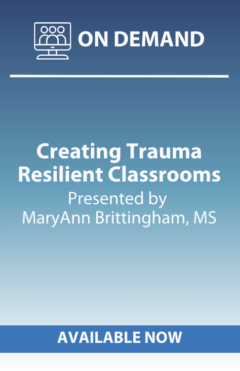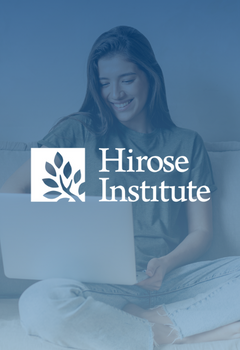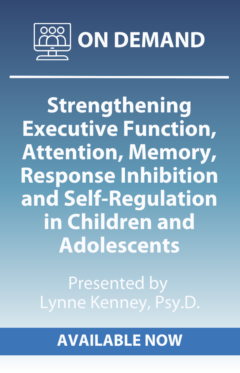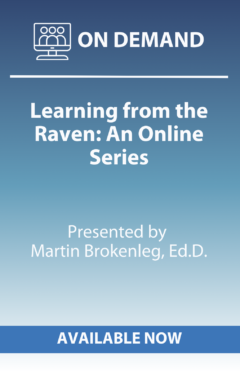Description
These workshops will be live streaming to online participants on October 30 & 31, 2024 from 8:30am – 4:00pm (Vancouver, BC)
Please adjust your start time according to your specific time zone.
Recorded footage and all course content (certificate, videos, quiz) will be available until November 30, 2024. Extensions cannot be granted under any circumstances.
Please allow 5 – 7 business days after the course airs for recorded footage to become available.
Registration will close on October 29, 2024.
Decolonizing Counselling and Mental Health Approaches to Address Complex PTSD and Intergenerational Trauma
This session will focus on the benefits of narrative-based approaches in addressing mind, body, spirit, and emotion so that trauma survivors can make meaning of their experiences, change their self-concept, and restore relationships with other people and the world. During this session, we will also consider the ways in which colonial systems, institutions, and practices can better meet the needs of Indigenous peoples. We will examine Indigenous frameworks for understanding health, wellness, and healing and will also consider the medicine circle as a model for understanding trauma and healing.
Indigenous science and medicine connects the self to the external world within a network of kinship relationships. Complex trauma distorts these relationships and destroys the survivor’s sense of self. Intergenerational trauma extends these patterns across time and space in communities and family systems. By decolonizing their practice, mental health professionals are better able to meet the needs of Indigenous clients by providing culturally sensitive care.
Indigenous Healing Practices
It is always important to look at healing as a wholistic process. The healing of the body, the mind, the emotions and the spirit must happen together although one may follow the other and move back and forth across time as inner awareness builds. There are multiple tools for learning that can be considered. We understand that not every Indigenous person has had the experience of working with elders, not everyone has been raised on reserve, or had the teachings offered to them from childhood. We appreciate there may be a searching process that is undertaken especially when there have been Adverse Childhood Experiences, foster or adoptive care, or other impacts that may have contributed to trauma and a deep need for healing. This session will discuss the need to appreciate everything about being alive, from the mundane and what you put into your body, to expression of the sacred and our spiritual selves. Each of us is so much more than what we see in the mirror every day.
Clinical Professionals: All mental health professionals including, but not limited to Clinical Counsellors, Psychologists, Psychotherapists, Social Workers, Nurses, Occupational Therapists, Hospice and Palliative Care Workers, School Counsellors, Youth Workers, Mental Health Workers, Addiction Specialists, Marital & Family Therapists, Speech Language Pathologists, Vocational Rehabilitation Consultants and all professionals looking to enhance their therapeutic skills.
Suzanne Methot is the author of the award-winning non-fiction book Legacy: Trauma, Story, and Indigenous Healing (2019), which Margaret Atwood chose as one of 10 books to read for “important background reading in a time of Canada-First Nations clashes.” She is also the co-author of the textbook Aboriginal Beliefs, Values and Aspirations (2011). Suzanne is a social historian, educator, and community worker who has over 30 years of experience creating and applying equity-based programs, curriculum, and service frameworks in the education, social service, health care, and museum sectors. She has also worked in advocacy and direct-service positions at organizations including the YWCA Elm Centre (Winona’s Place) and the Native Women’s Resource Centre of Toronto, and facilitated change-making sessions/groups at West Neighbourhood House (Toronto), Strong Nations (Nanaimo, BC), and the Hiiye’yu Lelum House of Friendship (Duncan, BC), serving community members healing from intergenerational trauma and reclaiming culture while marginalized by racism, poverty, homelessness, health status, addictions, mental-health challenges, crime, and victimization.
Suzanne’s work focuses on systemic change through decolonization, anti-oppression, and culture-based, trauma-informed practice. At the Toronto District School Board, she created an arts-based classroom program for Indigenous students experiencing intergenerational trauma that matched Indigenous cultures, histories, and perspectives to the Ontario curriculum in order to foster identity, engagement, and student achievement. At the Anishinabek Nation, Suzanne provided support to Community Health Representatives in over 40 on-reserve communities across Ontario, and also co-facilitated a province-wide community consultation on Indigenous culture-based models for long-term care. Community engagement and community-led approaches are central to Suzanne’s work. At the Native Women’s Resource Centre of Toronto, she co-facilitated community consultations that developed the first set of best practices and professional standards for Indigenous adult literacy programs in the province through the Ontario Native Literacy Coalition’s Native Literacy Planning Process. She was also part of the educator working group that developed a culture-based curriculum framework for urban Indigenous learners during the First Nations Adult Education Project. From 2014 to 2019, Suzanne was an appointee to the Royal Ontario Museum’s Indigenous Advisory Circle, assisting the ROM Learning Department in building authentic and sustainable relationships with Indigenous communities. Suzanne also served on the Program Advisory Committee for Durham College’s Faculty of Journalism and Mass Media from 2016-2019, and on the Voice of Witness Education Advisory since 2020.
Born in Vancouver and raised in Sagitawa/Peace River, Alberta, Suzanne is Asiniwachi Nehiyaw (Rocky Mountain Cree) of mixed Indigenous and European heritage. She lived on Wendat-Haudenosaunee-Anishinabeg territory in Toronto for 29 years, and now lives on the unceded territory of the Snuneymuxw Nation, near Nanaimo, BC. Her book for young adults, Killing the Wittigo: Indigenous Culture-Based Approaches to Waking Up, Taking Action, and Doing the Work of Healing, will be published in Spring 2023 by ECW Press.
Cynthia Wesley-Esquimaux, Ph.D. served as Vice Provost for Indigenous Initiatives at Lakehead University for three years. Effective September 2016 she was appointed as the 1st Indigenous Chair for Truth and Reconciliation in Canada for Lakehead University and continues to develop pathways forward to reconciliation across Canada. Cynthia was inducted as a “Honourary Witness” by the Truth and Reconciliation Commission of Canada in 2014, and is the Chair of the Governing Circle for the National Centre for Truth and Reconciliation at the University of Manitoba.
Cynthia was the inaugural Nexen Chair for Indigenous Leadership at the Banff Centre for Arts and Creativity where she remains a faculty member and is currently the Interim Director for the Indigenous Leadership Program. She is also Chair of the Teach for Canada non-profit which recruits teachers for remote First Nation schools in Ontario and Manitoba.
Cynthia is a member and resident of the Chippewa of Georgina Island First Nation in Ontario and has dedicated her life to building bridges of understanding. She sees endless merit in bringing people from diverse cultures, ages, and backgrounds together to engage in practical dialogue and applied research initiatives. She is deeply committed to public education and offers as many as 150 key notes, workshops, and training sessions annually to a variety of groups, organizations and institutions. She teaches on historic and contemporary Indigenous trauma and wisdom, treaties and right relations, active youth engagement, and Indigenizing education.
She is always interested in mentoring young people and co-founded a youth project out of the University of Toronto, the University of Saskatchewan and Lakehead University. More information on the Canadian Roots Exchange (CRE) can be found at: www.canadianroots.ca.
| Registration | Early bird Fee | Regular Fee |
|---|
| Individual Enrollment | 469.00 | N/A |
| | |
All fees are in Canadian dollars ($CAD).
Group rates and student rates are available. Please contact webinars@jackhirose.com for more information.





